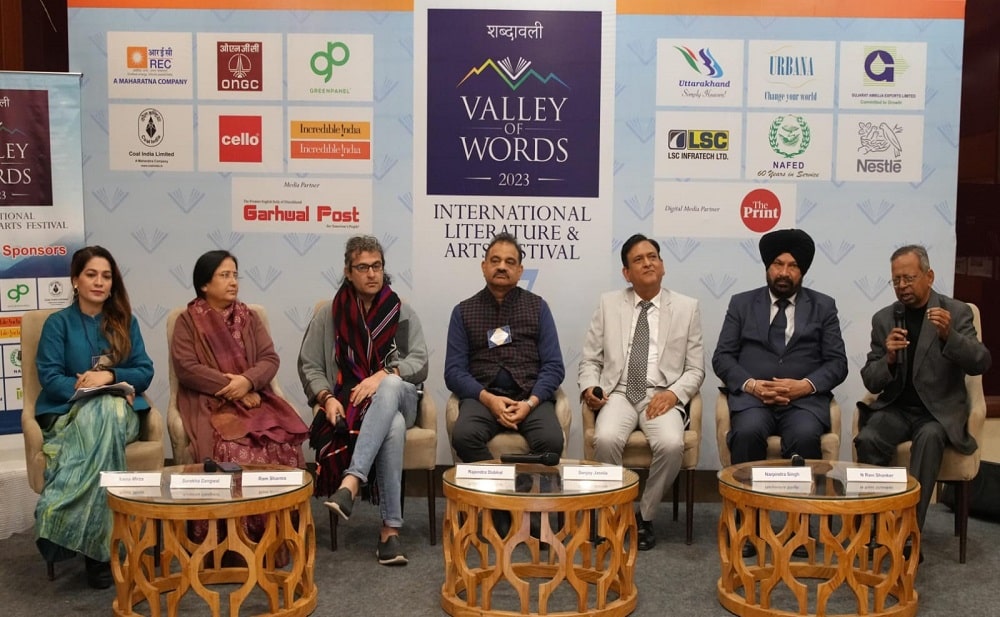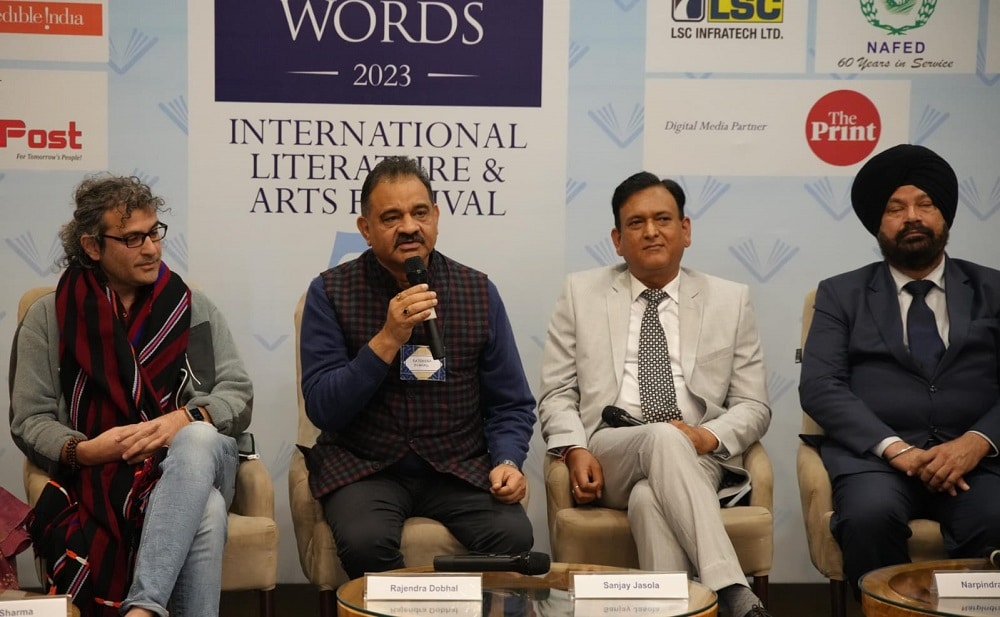Dr Rajendra Dobhal participates in Vice Chancellors’ Round Table on NEP held at Valley of Words
A roundtable of Vice Chancellors (VCs) of various universities on the New Education Policy (NEP) was held on the concluding day of the Valley of Words Literature & Arts Festival, on 17th December.
The Session was chaired by former Chief Secretary of Uttarakhand, N Ravi Shankar, while the participants were Prof Surekha Dangwal, VC of Doon University; Dr Rajendra Dobhal, VC of Swami Rama Himalayan University; Dr Ram Sharma, VC of UPES: Dr Sanjay Jasola, VC of Graphic Era Hill University; and Dr Narpindra Singh, VC of Graphic Era Deemed University. The session was moderated by Amna Mirza.
Prof Dangwal asserted that the New Education Policy is a revolutionary step. She added that NEP offers a lot of academic flexibility to the students who wish to follow different streams at the same time. This is one of the core elements of the NEP, whereas the old policy had created sharp compartmentalisation of various subjects and streams and did not suit the modern requirements of society, the market and the country.
She further felt that the NEP incorporates the Indian value system and ethics as part of the curriculum and also aims at development of critical analytical abilities among the students and encourages evidence-based research.
The NEP, she opined connects the students to the roots and then through that to the whole world. The NEP has the potential to change the entire scenario of education in India.
Dr Ram Sharma reminded that the language for teaching is not so relevant and that he does not believe that the children have to necessarily be taught in their mother tongue only. It is the knowledge of the core subject which matters rather than the language in which that has been taught. He cited his own case and said that he comes from Rajasthan and had started learning English in class 6 and till B.Sc. studied even Physics in Hindi medium. He also felt that the purpose of Education should be to create problem solvers. He also praised the NEP and said that integrated knowledge is becoming the need of the hour and that NEP offers this opportunity.
Dr Rajendra Dobhal insisted that science is integral to the country’s development and not so much as social science. He cited various sectors like space science, IT and medical science which he described as critical to India’s progress. He also felt that Universities’ collaboration with Industry is not always productive because due to business constraints, industries often manipulate research conducted under PPP by the universities.
Dr Sanjay Jasola focused on how youth should become ‘job-givers’ instead of ‘job-seekers’ with a fourth Industrial Revolution. He did not agree that the best of minds are leaving the country for education. He said that CEOs of many top global companies are Indians educated in India and not just in IITs. He also cited the example of ISRO scientists who have been creating waves with missions such as Chandrayan Mission and said that most of these scientists had their education in government schools and universities.
Dr Narpindra Singh stated that, in certain fields, Indian universities lack the necessary infrastructure and therefore do not encourage deep research. Singh also spoke about the importance of passion in educational endeavours.


